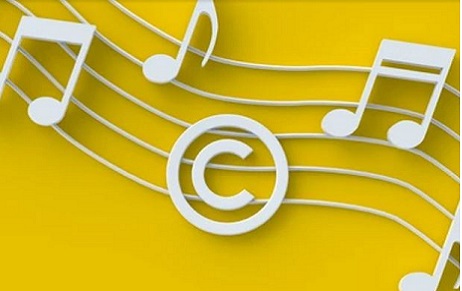Any successful café, restaurant, or retail establishment's environment is greatly influenced by its music. It…
European Union Directive On Copyright
Introduction
The efforts of the European Union (EU) to pass a new copyright law has just received a much-needed push. In a meeting held on Friday[1], ambassadors from a majority of EU member countries have agreed to the draft directive rules. With the final agreement on the draft rules expected to come before the February 14th deadline, we take a look at some of the provisions of this directive that have been the subject of debate recently.
What Is The New EU Directive On Copyright?
Directive of the European Parliament and of the Council on Copyright in the Digital Single Market or the Directive on Copyright is a proposed draft law in the European Union. The law is aimed at regulating the sharing of copyrighted materials across the internet. As per the draft rules, each member state will be allowed to pass its own copyright laws as long as they are in consonance with the directive. Hence, the draft proposal will bring standardization to copyright law in the EU region.
Object Of The Directive On Copyright
The new draft rules have been proposed with the aim of updating the sound principals of the existing copyright framework in EU with the new uses as well as with the new actors and business structures that have emerged with the development of technology. The directive was introduced after the realization that in the current digital ecosystem, the opportunities for users to access the copyrighted material has exponentially increased. The directive is aimed at enhancing the “cross-border access to copyright-protected content services, facilitate new uses in the fields of research and education, and clarify the role of online services in the distribution of works and other subject-matters.”[2]
The focus area of the directive remains the cross-border use of the copyright material. The Explanatory Memorandum explains that although there are certain exceptions for the use of copyrighted material at the national level in the field of education and research, their cross-border use remains uncertain. The directive will hence provide legal certainty for certain cross-border use of copyrighted material in three main areas. They are: “digital and cross-border uses in the field of education, text, and data mining in the field of scientific research, and preservation of cultural heritage.”
Even though the draft rules are aimed at bringing more clarity regarding the cross-border use of copyrighted material, it has faced severe criticism from society. The Directive on Copyright has in total of 5 title chapters and 24 articles. But some of its components have received an unfavorable response due to the uncertainty of meaning and vagueness of implementation. Most prominent examples of this are Article 11 and Article 13.
Protection Of Press Publication Concerning Digital Uses
More commonly referred to as Article 11, this article requires the member states to grant the content creator with exclusive rights regarding the production of their works, performances, phonograms etc.[3] Also dubbed as the “link tax”, this Article would allow press publication to charge money from news aggregator services such as Google News and Bing news for showing snippets of their news. The protection granted by this article has not been extended to the scientific or academic publications and has also excluded “acts of hyperlinking which do not constitute communication to the public.”
The main problem is the interpretation of the article. The draft rules don’t explicitly state how much of an article would be exempted from the protection granted under this article. The article also doesn’t explain what will amount to individual and non-commercial use. Many people fear that this can be interpreted and manipulated to suit the big players in the market.
Use Of Protected Content By Information Society Service Providers Storing And Giving Access To Large Amounts Of Works And Other Subject-Matter Uploaded By Their Users
More commonly referred to as Article 13, this article puts the onus of removing content that violates copyright on the Information Society Service Providers (ISSP) such as YouTube and Facebook. As per the current copyright laws, if the use of content online infringes upon the copyright of its creator, it will be for the creator to file a complaint against the infringer. But the current rules propose to shift this duty on the ISSPs and imposes a penalty on them if they fail to take action.
This Article has been a major point of contention for many people across the globe. Fears have been voiced that Article 13 will only benefit the big business houses and will lead to a situation where most of the content online will be controlled by a small number of large companies.[4] Many people have raised censorship concerns as well that entails the application of this article.
Impact Of EU Directive On Copyright In India
To understand the impact of draft rules on India, an analogy needs to be drawn between the copyright directive and the GDPR laws. When GDPR laws were passed by the EU, the tech companies all over the world adopted its guidelines. Facebook and Twitter took GDPR guidelines as the base denominator and applied it worldwide, including in India. This is the reason why people in India received the “We have Updated Our Privacy Policy” email as soon as the EU data protection laws were passed. The same could happen again once draft rules are adopted by the EU.
Conclusion
Although aimed at doing greater good, the Directive on Copyright is far from being a perfect law. It would be easy for the big companies to use the vague language in the directive to their own advantage and hence restricting the free flow of thought and creativity over the internet. If implemented improperly, it would open the floodgates of litigation and will change the way we use our internet today.
Author: Mr. Varun Sharma, Intern at Khurana & Khurana, Advocates and IP Attorneys. In case of any queries please contact/write back to us at pratistha@iiprd.com.
References:
[1]Mehreen Khan, EU Countries finalise draft rules to update copyright law, Financial Times
[2]Directive of the European Parliament and of the Council on Copyright in the Digital Single Market, 2018, (European Union)
[3]Art. 2, Directive Of The European Parliament And Of The Council On The Harmonisation Of Certain Aspects Of Copyright And Related Rights In The Information Society, 2001, (European Union)
[4]Susan Wojcicki, A Final Update on Our Priorities for 2018, Youtube Creator Blog, https://youtube-creators.googleblog.com/2018/10/a-final-update-on-our-priorities-for.html, (22/10/2018)



